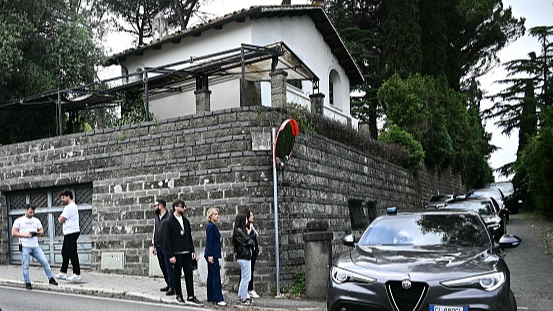Iranian Official Calls on U.S. to Acknowledge Tehran's Dedication to Diplomatic Negotiations
Iran urges U.S. to acknowledge its sincere efforts toward resolving differences amid ongoing indirect talks.


A senior Iranian political official called on the United States to acknowledge what he described as Iran's genuine commitment to resolving bilateral differences through dialogue. The comments came in the wake of a fifth round of indirect negotiations between the two countries, marking another attempt to break the longstanding deadlock over Iran’s nuclear program and the international sanctions regime.
In remarks made during an exclusive interview, the official—speaking anonymously—urged Washington to respond positively to Iran’s “flexible and constructive approach.” He asserted that if the United States is truly concerned about the peaceful nature of Iran's nuclear efforts, it should engage sincerely in the diplomatic process, rather than bolstering regional rivals such as Israel, which he accused of seeking to “destroy Iran’s peaceful nuclear industry.”
The official also highlighted that Iran’s participation in talks has always been intended to demonstrate transparency regarding its nuclear program and to secure the long-promised removal of crippling economic sanctions. However, he criticized the U.S. position on these issues, calling it “contradictory” for demanding the complete dismantling of Iran’s nuclear capabilities without presenting any viable plan or commitment for sanctions relief in return.
According to the official, this inconsistency has not only stalled progress but has also threatened to undermine the very foundation upon which diplomatic negotiations are built. “The contradictory stance adopted by the United States has fundamentally altered the nature of the issue,” he said. “This renders the ongoing dialogue increasingly meaningless and raises questions about the true intentions behind these talks.”
He further accused Washington of attempting to force a deadlock in the negotiations by insisting that Iran cease all uranium enrichment activities. Such a demand, the official emphasized, is fully recognized by both sides as a red line that Iran will not cross. For Tehran, uranium enrichment stands as both a technical necessity and a potent symbol of national independence and sovereignty.
"Defending our right to enrichment is, in fact, defending our national sovereignty and territorial integrity against any foreign threats or aggression," the official declared, underscoring the issue’s significant domestic resonance.
There is a growing perception among some observers, the official added, that the protracted talks may never have been intended to resolve the dispute, but rather to exert psychological pressure on Iran. “Doubts raised by those who saw this as a broader campaign of pressure and delay are proving more accurate by the day,” he commented.
On the matter of sanctions, the Iranian representative expressed frustration that U.S. negotiators appear hamstrung by complex legal constraints, resulting in repeated delays and a lack of substantive proposals at the negotiating table. This, he asserted, has continued to impede progress toward any meaningful agreement.
As indirect talks continue, the official’s remarks reflect both frustration over stalled diplomacy and a renewed insistence on recognition of Iran’s rights. The path forward remains uncertain, with the prospects for a breakthrough appearing increasingly elusive under current conditions.




